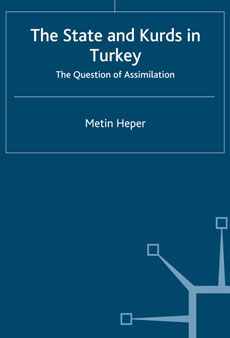| Preface
When the author was a student at Ankara College (secondary high school) from 1956 to 1959, next to him sat a student whose last name was Bahar. It took two or three years for the author to realize that Bahar was a Jewish citizen of Turkey. He found that out on a day in May of either 1958 or 1959. That year, May was a month of the Ramadan, the month the Muslims fast. It was a rather warm day. A group of students, including the author, were going to play soccer during the noon break. They were, however, one player short. The author asked Bahar to join them; Bahar said he did not want to. Thinking that Bahar was fasting, the author tried to persuade Bahar to play with them by saying that it is a warm day all right, but several other students are also fasting (many out of fashion, not because they were practicing Muslims), and that not being able to drink water for another fıve to six hours, despite the fact we would all perspire a lot, would not be the end of the world. Bahar responded by saying, ‘It is not that Metin. Today, I just don’t feel like it’. Then he added, ‘By the way, Metin, I am not a Muslim’. The author did not pay much attention to the very last sentence, nor did he think about it later. In the mid-1980s, one evening the author went to a fish restaurant in Istanbul. That evening, the proprietor, Zühtü Bey, whom the author had come to know well and who always enjoyed having a chitchat with the author, was not in the mood. Zühtü Bey explained what bothered him: ‘Hocam (Sir), you will not believe what I am going to tell you. I have just been told that late last night, some of my supposedly Turkish waiters beat some of my supposedly Kurdish waiters. What is this? What is going on in this country?’
At the time, armed clashes had already started between the Kurdistan Workers Party (Partiya Karkeren Kurdistan-PKK) and government forces in Turkey; however, Zühtü Bey could not see a relationship between the fıght at his restaurant and the large scale ‘troubles’ taking place in the country.
In the 1980s and later, those who penned works on the Kurdish issue in Turkey have tended to argue that the ‘troubles’ in question were due to the ‘fact’ that the state in that country had tried to assimilate the Kurds, or otherwise acted in a rather harsh manner towards them; the Kurds put up a resistance, rebelling from time to time, and the state had made resort to further oppressive acts. Could this be a valid response to Zühtü Bey’s query of what had been going on in the country? Could Zühtü Bey be a totally ignorant person or could the above narrative concerning the Kurdish issue in Turkey miss something important? Going back to the 1950s, if such a major event as an attempt at ethnic cleansing had taken place in a country, could someone with a high school education not pay any attention at all to whether someone he knew well was a Muslim or non-Muslim?
It was with those and some related questions in mind that the author, in 1994, signed a book contract with what was at the time Macmillan Press, and what today is Macmillan Palgrave Press. The author thinks he has come up with a satisfactory answer to both of the queries raised above. He is, however, curious whether readers of this book, too, will find plausible his narrative of what the Kurdish issue in Turkey is all about.
The author is grateful to Professors Ahmet Evin, Clement H. Dodd, Carter Vaughn Findley, Bükrü Hanioklu, Halil Inalcık, Kemal H. Karpat, Andrew Mango, Sabri Sayarı, late Stanford J. Shaw, and Frank Tachau, who read all or some draft chapters of this book and shared their profound knowledge and wisdom with him. Needless to point out, the author alone is responsible for the final product.
The author also would also like to thank a series of editors of Macmillan Press and/or Palgrave Macmillan, starting with Mr T. M. Farmiloe and ending with Ms Alison Howson and Amy Lankester-Owen who, for the past thirteen years, have never lost hope that one day the publisher was going to receive a manuscript from him! | 